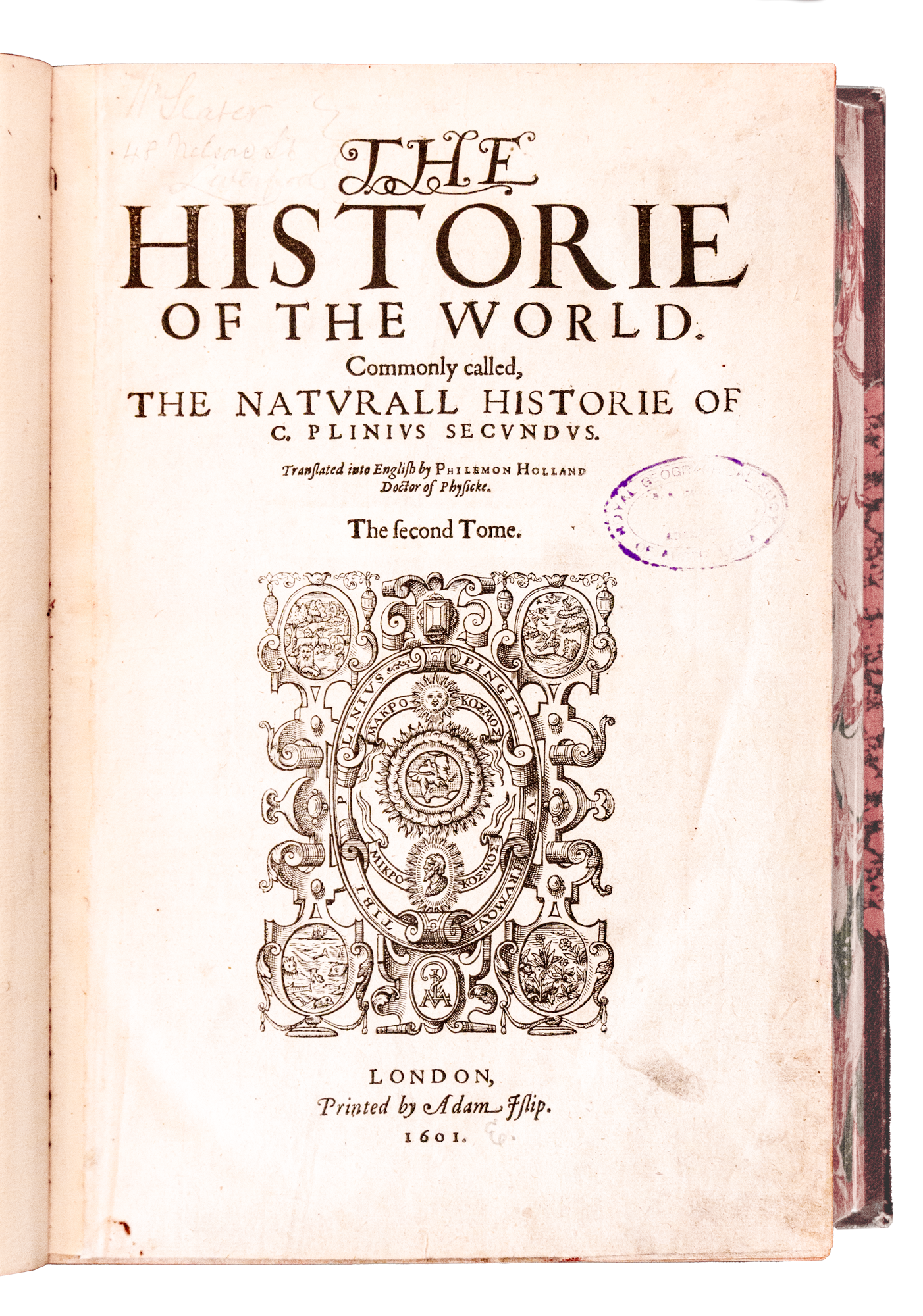
Pliny the Elder (Gaius Plinius Secundus) was a celebrated Roman author and authority on scientific matters. His work was copied over the centuries and among the first books to be printed in Italy. His work was highly influential right up until the Renaissance.
Pliny held various military and administrative positions. He was a compulsive notetaker, reader and researcher. He died while investigating the volcanic eruption of Mt Vesuvius in 79 AD.
Pliny’s best known work and the only one preserved in its entirety is Naturalis Historia. Completed in 77 AD. It is considered the first encyclopaedia from antiquity.
Philemon Holland translated the Latin tome into English for the first time in 1601. It consists of a compilation of 20,000 noteworthy facts as well as myths covering every aspect of the world as known in Rome in the 1st Century AD. Philemon Holland was born in Essex 1552 and was an English schoolmaster and physician who combined teaching and medical practice with translation of classical works.